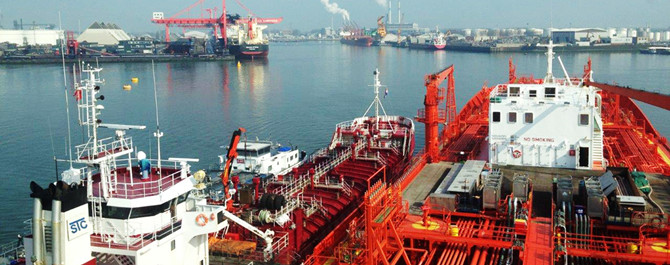
DNV is the first class society globally to introduce new class rules for electrical shore connections specifically tailored for tankers, contributing to setting sector norms.
The need for new rules on shore power for tankers emerged following amendments to the California Air Resources Board's (CARB) Ocean-Going Vessels At-Berth Regulation, requiring tankers to have emission control strategies in place at specific ports from January 2025. As a response to these regulatory changes, DNV, on behalf of the Western States Petroleum Association, conducted a comprehensive assessment of the feasibility of meeting the new requirements.
The assessment found significant gaps in the existing regulatory framework for shore power on tankers, emphasizing the necessity for more robust rules. The gaps included a lack of standardization for connection points, limited interface compatibility with terminal systems, and technology development constraints. The project also identified a need for risk evaluation in handling hazardous cargo during implementation of shore power technology.
“At DNV our primary focus is on safety. With tankers, that often carry potentially flammable cargoes, the electrical risks can be greater than for dry bulk carriers and containerships. This requires more attention on systems safety both on-board and on the quayside,” said Catrine Vestereng, Senior Vice President, and Global Segment Director Tankers at DNV Maritime. “These gaps underscore the importance of establishing industry-standard guidelines to address safety concerns effectively and ensure the well-being of personnel and assets involved in tanker operations.”
To ensure a comprehensive and inclusive process, DNV sought feedback from interested parties through proposals for a hearing starting 8 March. After incorporating insights and expertise from leading energy charterers, tanker terminals, and prominent ship owners, DNV has finalised the rules after a five-week review period.
“The Oil Companies International Marine Forum’s (OCIMF) Environment Committee established the Onshore Power Supply Work Group (OPS WG), a joint industry working group to support the development of standardised practices guidance regarding the application of shore power for tankers, terminals, and their interface. DNV has been a part of this collective endeavour, contributing significantly. We appreciate their and all our industry partners’ efforts as we strive to accelerate the adoption of innovative solutions to reduce emissions,” said Filipe Santana, Engineering Adviser at OCIMF.
The new rules were officially released on July 1st, 2023.
Source:
DNV
The opinions expressed herein are the author's and not necessarily those of The Xinde Marine News.
Please Contact Us at:
media@xindemarine.com


 Ningbo Containerized Freight Index Weekly Commentar
Ningbo Containerized Freight Index Weekly Commentar  Ningbo Containerized Freight Index Weekly Commentar
Ningbo Containerized Freight Index Weekly Commentar  Ningbo Containerized Freight Index Weekly Commentar
Ningbo Containerized Freight Index Weekly Commentar  BIMCO Shipping Number of the Week: Bulker newbuildi
BIMCO Shipping Number of the Week: Bulker newbuildi  Ningbo Containerized Freight Index Weekly Commentar
Ningbo Containerized Freight Index Weekly Commentar  Ningbo Containerized Freight Index Weekly Commentar
Ningbo Containerized Freight Index Weekly Commentar